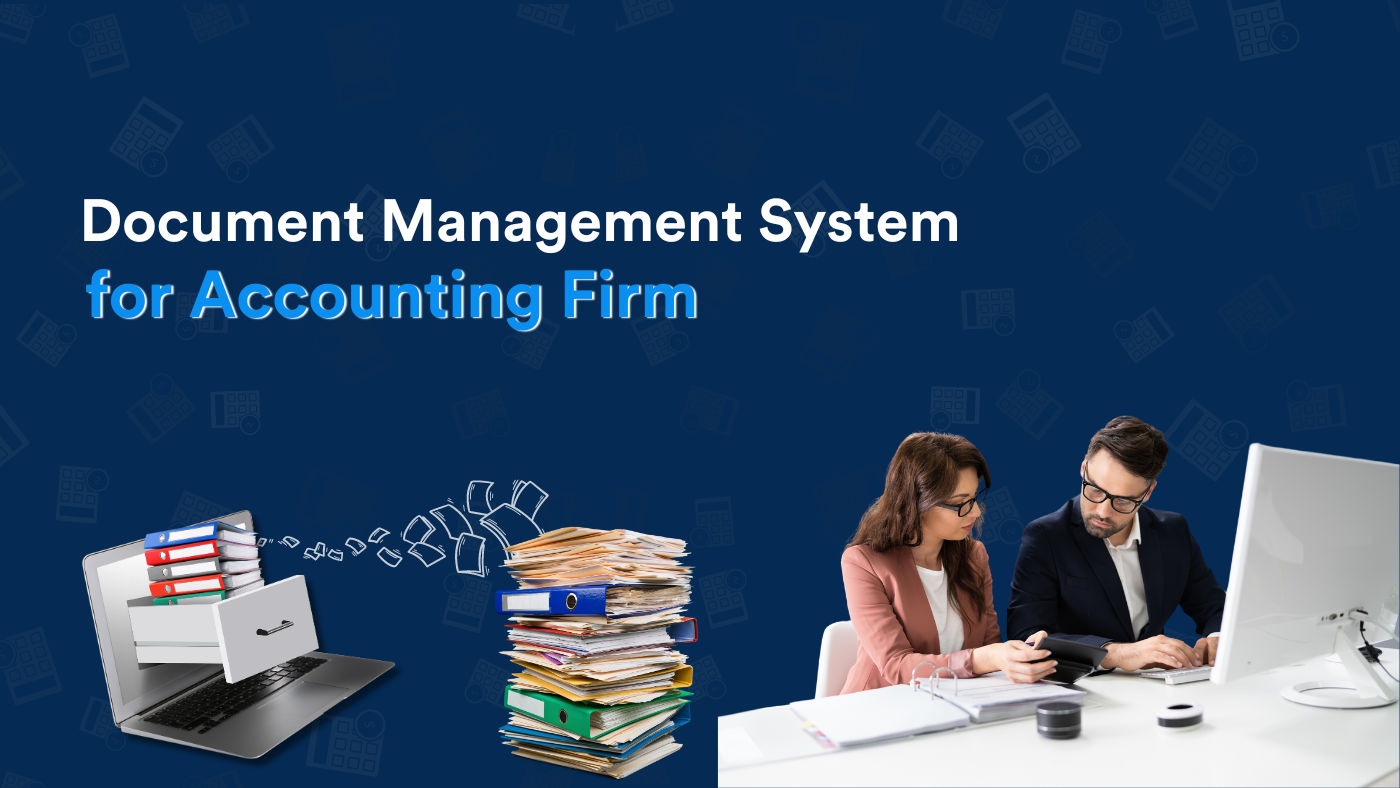
Best Document Management System for Accounting Firms
In today’s digital age, accounting firms face the challenge of managing vast amounts of documents and financial records efficiently. From client files and invoices to tax documents and audit reports, the sheer volume of paperwork can become overwhelming. Implementing a Document Management System (DMS) is an effective way for accounting firms to streamline their document management processes, enhance efficiency, and maintain compliance with industry regulations. In this blog, we will explore the benefits of a DMS specifically designed for accounting firms and how it can help transform the way firms handle their digital data.
Why Accounting Firms Need a Document Management System
Improve your accounting firm’s efficiency with our Document Management System for accounting firms. Organize documents by financial year, client, and category while ensuring security and compliance.
Accounting firms deal with a significant amount of sensitive financial data, including client records, tax returns, and confidential reports. A Document management system for accounting firms helps organize, store, and retrieve these documents in a secure and efficient manner. Traditional paper-based systems or scattered digital files can lead to inefficiencies, data loss, or compliance issues. A DMS provides a centralized, organized platform that not only saves time but also reduces the risks associated with manual document handling.
Key Features of a Document Management System for Accounting Firms
1.Financial Year-Wise Organization
Accounting firms need to organize documents based on the financial year for quick retrieval during audits or tax filings. A DMS provides an intuitive structure that allows firms to categorize documents by financial year, ensuring all relevant files are easy to locate.
2.Client-Wise Sorting
Managing client files can be time-consuming when documents are stored in multiple locations. A DMS enables accounting firms to create client-specific folders where all related financial documents are stored together. This ensures seamless access to client records for audits, reports, and ongoing financial management.
3.Category-Wise Classification
A DMS allows firms to categorize documents by type, such as invoices, contracts, financial statements, and tax forms. This categorization makes it easy to find specific document types, even within large data sets, improving overall operational efficiency.
4.Category-Wise Classification
Every accounting firm has unique processes for managing its documents. A robust DMS enables firms to create custom classes for different types of documents, providing flexibility and ensuring the system fits the firm’s specific needs.
5.Enhanced Security and Compliance
Security is paramount for accounting firms handling sensitive financial data. A DMS provides access control, encryption, and audit trails, ensuring compliance with regulations like GDPR and ensuring client data remains secure.
Benefits of Implementing a DMS for Accounting Firms
1.Improved Efficiency
A DMS reduces the time spent on searching for documents, allowing accountants to focus more on providing value to their clients. The system’s advanced search functionality ensures quick and easy retrieval of files, saving valuable time during audits or tax filings.
2.Reduced Paperwork and Office Space
A paperless environment not only reduces the need for physical storage but also helps the firm become more environmentally friendly. Digital documents are easier to manage, search, and store, leading to significant cost savings in terms of paper and office space.
3.Streamlined Collaboration
Teams within accounting firms often work on shared documents, especially during audits or tax seasons. A DMS facilitates secure document sharing and collaboration among team members, improving communication and workflow efficiency.
4.Improved Client Service
A well-organized document management system allows accounting firms to respond faster to client inquiries by providing quick access to relevant documents. This leads to improved client satisfaction and better client relationships.
How Document management system Can Help Accounting Firms
Our eDMS (Electronic Document Management System) is designed to meet the specific needs of accounting firms. With features like financial year-wise organization, client-wise sorting, and category-based classification, our Document management system for accounting firms helps manage their documents efficiently and securely. The platform’s robust security features ensure that your firm remains compliant with data protection regulations while maintaining the highest level of data security.
Our eDMS also offers custom document classification, allowing you to create unique categories that fit your firm’s operational workflow. Whether you need to manage client records, tax documents, or audit reports, My E Office’s DMS simplifies your document management process, allowing your team to focus on what matters most—serving your clients.
Conclusion
In an industry where efficiency, organization, and compliance are critical, a Document Management System for accounting firm is a game-changer for accounting firms. By digitizing and organizing documents, accounting firms can improve efficiency, reduce paperwork, and enhance data security. My E Office’s DMS is the perfect solution for accounting firms looking to streamline their document processes and ensure compliance. Take the next step toward a paperless, efficient future with our document management system for accounting firms.
